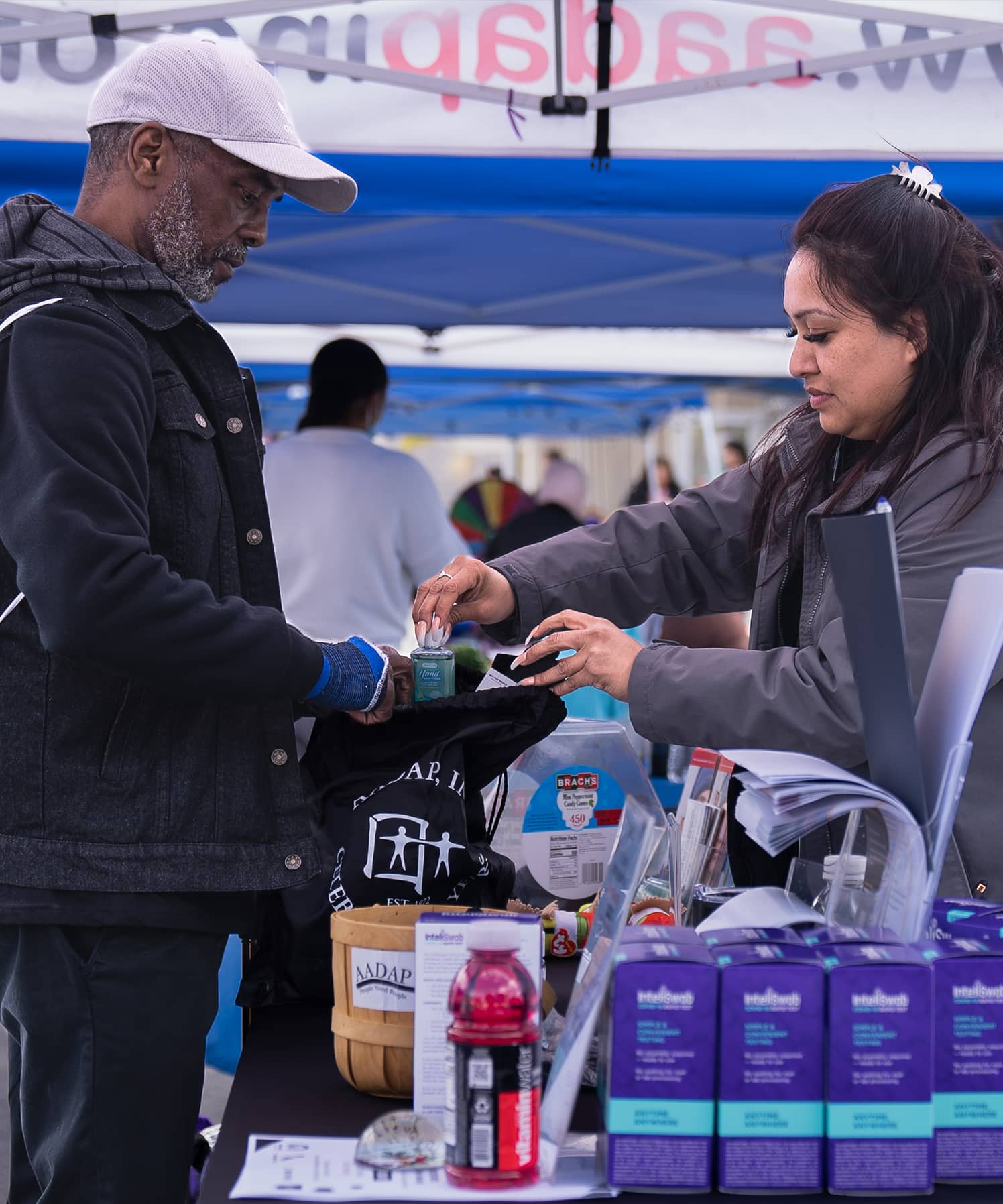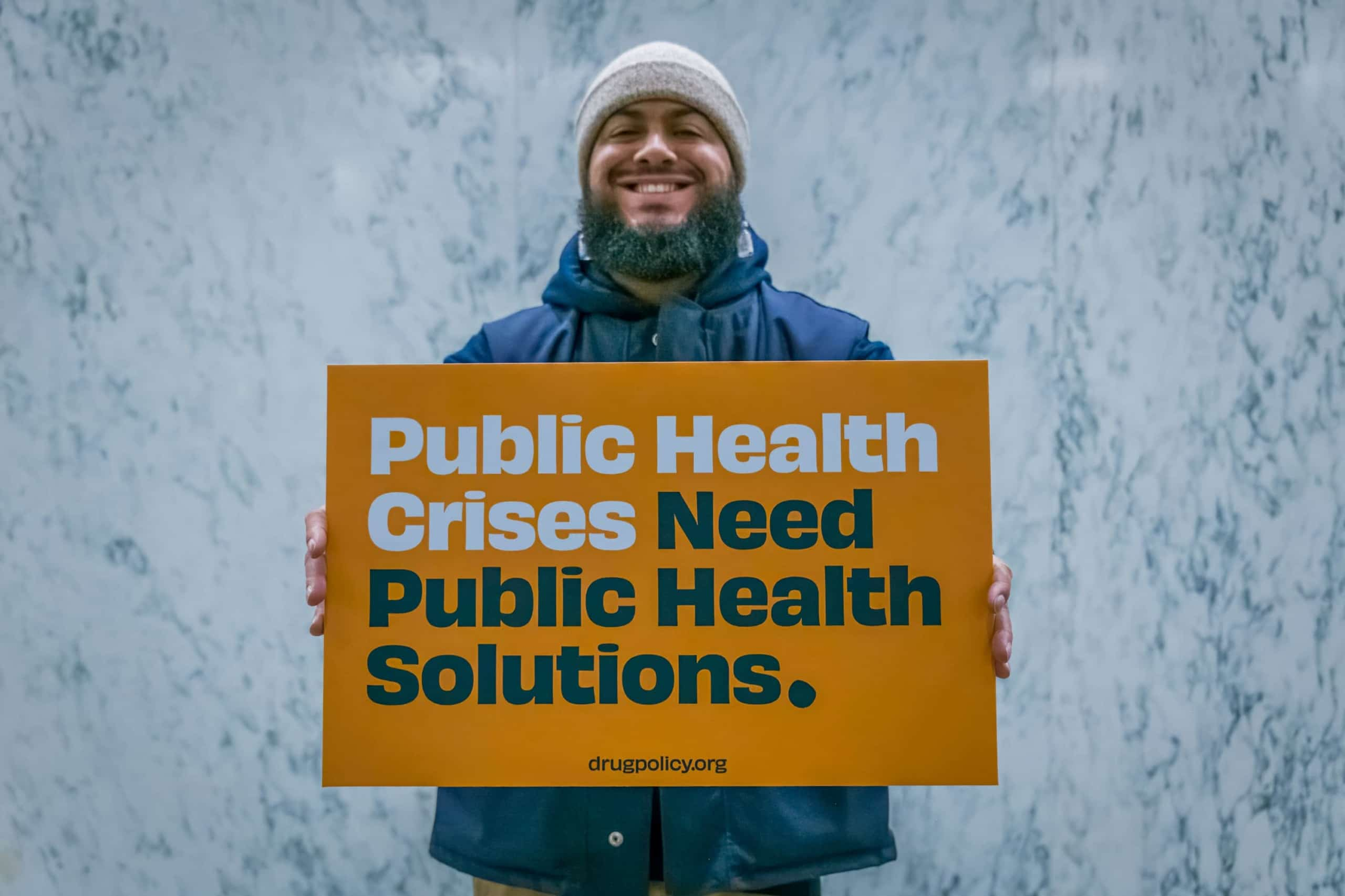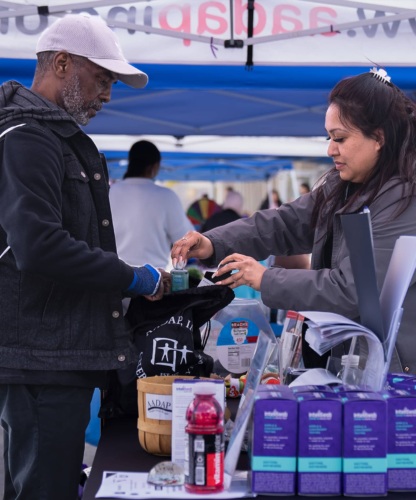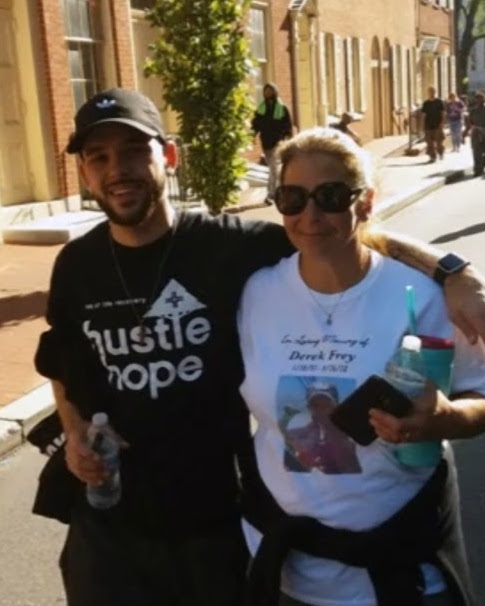Interactive Map: Drug Criminalization Impacts
Use our interactive map to explore state laws, arrest rates, overdose rates, and drug decriminalization legislation.
Drug criminalization increases overdose risk, drains community resources, and creates instability. The Drug Policy Alliance advocates for a public health approach to drugs that prioritizes health, social support, and community well-being.
“ As a police officer, I saw that no matter how much we ramped up enforcement efforts, drugs still entered communities and people still died from overdose. The focus needs to be on connecting people to the care they need.”

Shift drug policy from criminal penalties to public health, focusing on treatment, housing, jobs, healthcare, and crisis-response teams to provide effective support and resources.
These programs help people avoid the criminal legal system by providing services instead of punishment. They improve health outcomes, public safety, and save taxpayer dollars.
Health decisions should be made by the individual and a qualified health provider, not law enforcement. Jails are not health facilities.


Most Americans support a health approach to drugs. This means focusing on reducing the risk of drug use and overdose, prioritizing resources and health services that help people recover, stay safe, and thrive. Yet, for decades, arresting people has been the United States’ default response to drugs. During that time, the drug supply has become more dangerous, overdose deaths have increased, and human suffering is more visible than ever.
Drug criminalization diverts taxpayer dollars and funding away from health services and treatment. Every 31 seconds, someone is arrested for a drug offense, while individuals seeking drug treatment face weeks- or months-long waitlists. Arrest records and felony convictions follow people for years, which can result in people losing access to housing, employment, and more.
Criminalization also perpetuates racial disparities. Black individuals and white individuals use drugs at similar rates, yet Black people are arrested more and punished more severely than white people.
Under criminalization, drugs have become more potent, drug use has continued, and overdose deaths have risen dramatically. It’s not stopping these things, rather it’s making them worse.
In jails and prisons, drugs are still available, effective treatment is rare, and overdose occurs. Arresting and jailing people suffering from addiction overwhelms cops and legal systems. People cycle in and out of jail, ending up back on the street without meaningful care or support.
When the U.S. federal government criminalized all fentanyl-related substances in 2018, overdose deaths rose 60% in four years—from 67,367 deaths in 2018 to 107,941 in 2022. Recent decreases in overdose death are due to health and harm reduction services.
The Drug Policy Alliance is committed to reducing criminal penalties for drugs so that a true public health approach to drugs can flourish. Communities need investments to prevent addiction, reduce overdose deaths, address public suffering, and create pathways to stability. This means expanded health services and accessible treatment. It also includes affordable housing, good-paying jobs, education, crisis-response teams on the street, and quality healthcare.
Use our interactive map to explore state laws, arrest rates, overdose rates, and drug decriminalization legislation.
People who want treatment often face challenges to access. Learn more about current treatment options and solutions to expanding treatment access.
Tell lawmakers to include the RESTORE Act in the Farm Bill, ending the drug felony ban on SNAP.




Notifications